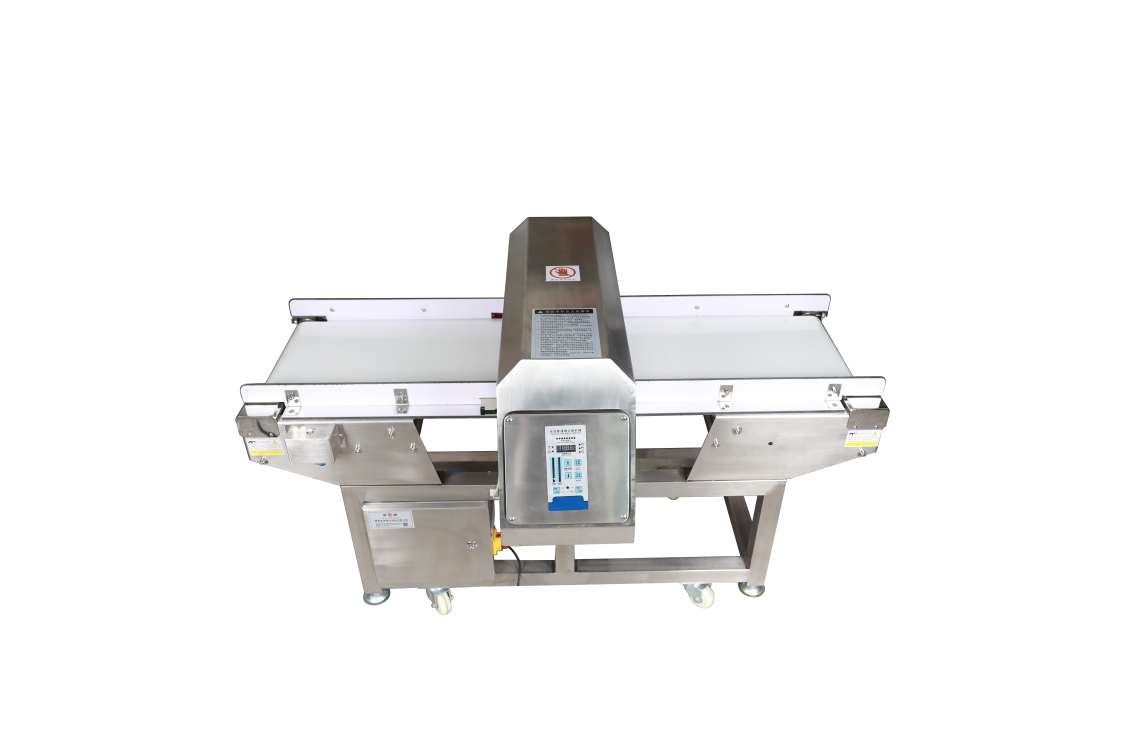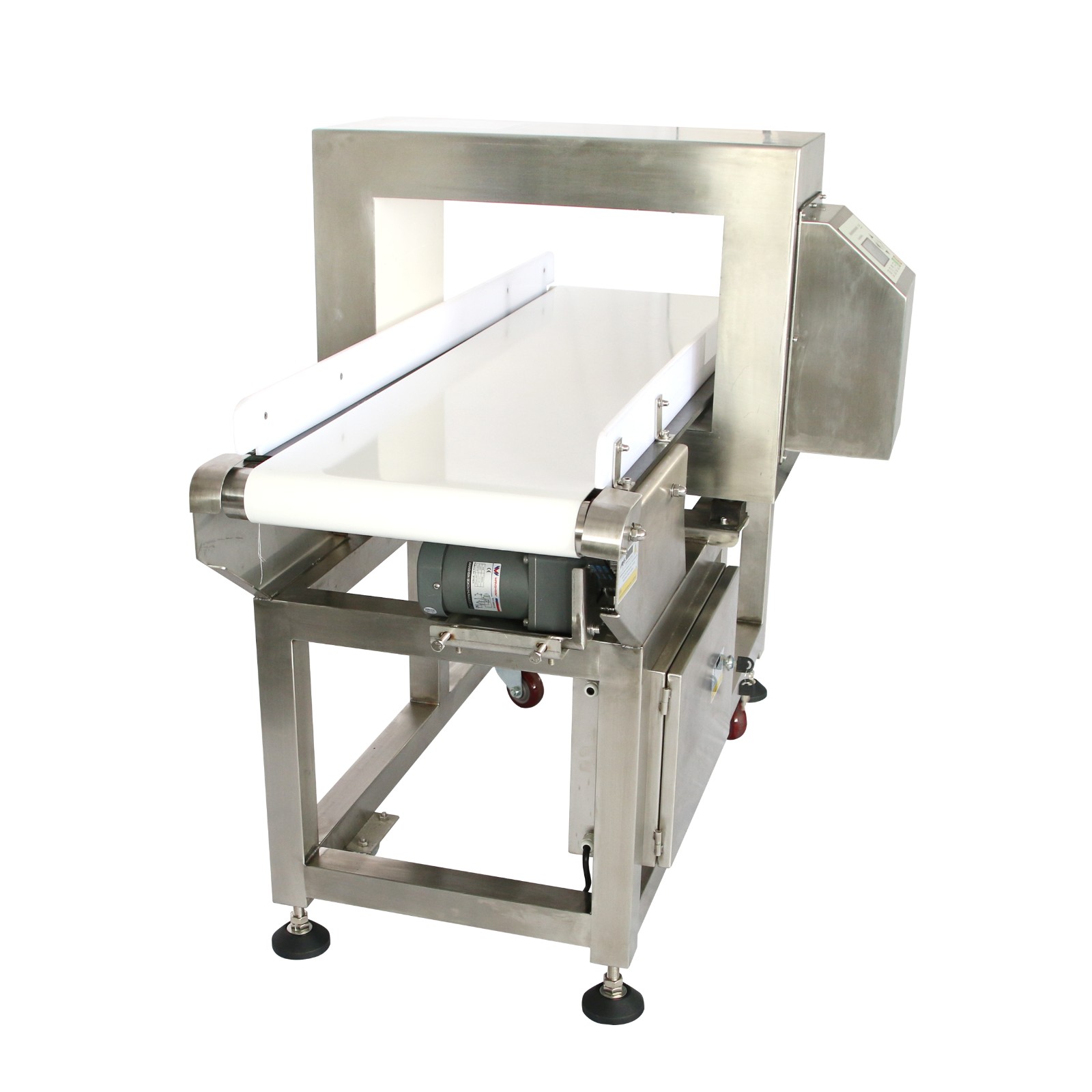detect metals in salad processing
Salad recipes material metal detection machine
What does salad dish consist ?
A salad is a dish consisting of mixed, mostly natural ingredients. They are typically served at room temperature or chilled,
though some can be served warm. Condiments and salad dressings, which exist in a variety of flavors, are often used to enhance a salad.
Salad dishes are commonly made with vegetables and fruit. The vegetables may be raw or cooked before being added to the dish. In addition to vegetables, salads may contain meat and fish as well as other non-vegetarian items such as cheese or eggs. Many salads are composed of lettuce (a form of cabbage), with various types of dressing on top.
Metal risk in vegetables and fruit processing
Vegetables and fruit are high in metals and other contaminants. The risk of metal contamination during processing can be reduced by using
washing equipment that can remove the majority of these contaminants from vegetables being processed.
Vegetables and fruit are processed in many different ways. Some of these processes are more risky than others, and some metals can be found in both vegetables and fruit.
Vegetables that are typically found to be at risk for metal contamination include:
-Cucumbers
-Lettuce (including leaf lettuce)
-Tomatoes
-Peppers (red and green)
Fruit that is often at risk for contamination include:
-Apples
-Pears
-Grapes
Metal detection in meat and fish processing
Metal detection in meat and fish processing is a growing problem. It's caused by the presence of metal contaminants in
meat and fish during processing, which can spread to surfaces such as conveyor belts, floors, and walls.
The metal contamination comes from a variety of sources:
-Metal shavings from knives or other tools
-Metals from processing machinery
-Metals used in packaging
Meat and fish processing is a high-risk industry, with an estimated annual cost of $3.6 billion in lost production.
Metal detection is an essential tool for ensuring the safety of meat and fish products. Metal detection devices are used to ensure that any foreign objects are removed from the raw materials before they enter the final product. Metal detection devices can be used to detect:
-metals such as iron, copper, zinc and nickel
-alloys such as stainless steel, titanium and platinum-iridium alloys
Salad recipes material sorting and inspection metal detection equipment
The Salad Recipes Material Sorting and Inspection Metal Detection Equipment is a perfect solution to your material sorting and inspection needs. It can be used for sorting of various types of materials, such as food ingredients, animal feed and seeds etc. The Salad Recipes Material Sorting and Inspection Metal Detection Equipment is an ideal solution for your material sorting requirements.
This Salad Recipes Material Sorting and Inspection Metal Detection Equipment has been developed in line with the latest technology and standards. This Salad Recipes Material Sorting and Inspection Metal Detection Equipment is designed to meet the requirements of different industries like pharmaceuticals, chemical, food processing, paper industry etc. The Salad Recipes Material Sorting and Inspection Metal Detection Equipment is easy to operate with minimal efforts required by the operators. In addition to this it has been designed in such a way that it requires less maintenance costs while maintaining a high level of efficiency throughout its entire working life span.
metal detection equipment for food industry
Our company has been engaged in the manufacture, sale and installation of Salad Recipes Material Sorting and Inspection Metal Detection Equipment for over 8 years. We have a full range of Salad Recipes Material Sorting and Inspection Metal Detection Equipment available to meet your needs. Our Salad Recipes Material Sorting and Inspection Metal Detection Equipment are designed to be reliable, high-tech solutions for your food processing or manufacturing needs.
Our Salad Recipes Material Sorting and Inspection Metal Detection Equipment can be used to detect metals in various types of food products. These include but are not limited to: fruits, vegetables, seafoods, meats, dairy products etc.
Implementing metal detection machines in the salad recipe material preparation process is crucial for ensuring the safety and quality of the final product. Detecting and removing metal contaminants from ingredients is a fundamental step in the food processing industry, including salad production. Let's explore the significance, benefits, and key considerations associated with using metal detection machines in the salad preparation process:
## I. Importance of Metal Detection Machines in Salad Recipe Material Preparation
### A. Food Safety
1. **Contaminant Prevention:** Metal detectors help prevent metal contaminants, such as fragments from processing equipment or foreign objects, from entering salad ingredients during the preparation stage.
2. **Consumer Protection:** Ensuring that the final salad product is safe for consumption and free from potential hazards associated with metal contamination.
### B. Quality Assurance
1. **Maintaining Product Integrity:** Metal detection contributes to the overall quality of the salad by maintaining the integrity of ingredients and preventing undesirable elements.
2. **Compliance with Standards:** Meeting industry and regulatory standards for food safety and quality control.
## II. Key Stages for Metal Detection in Salad Recipe Material Preparation
### A. Raw Ingredient Inspection
1. **Incoming Ingredients:** Metal detectors are employed to inspect raw ingredients, such as fresh vegetables, fruits, nuts, and seeds, for any metal contaminants before they are used in salad preparation.
2. **Contaminant Rejection:** Automatic rejection systems can be integrated to remove contaminated raw ingredients, preventing them from entering the production line.
### B. Processing and Cutting
1. **Inline Inspection:** Metal detectors can be integrated into processing and cutting lines to inspect ingredients for any metal particles introduced during the manufacturing process.
2. **Quick Rejection Systems:** Fast-acting rejection systems ensure that contaminated ingredients are immediately removed from the production line.
### C. Final Salad Assembly
1. **End-of-Line Inspection:** Metal detection at the final assembly stage ensures that metal contaminants are not present in the finished salad before packaging.
2. **Packaging Inspection:** Ensuring that metal contaminants are not introduced during the packaging process.
## III. Benefits of Metal Detection Machines in Salad Recipe Material Preparation
### A. Consumer Safety
1. **Preventing Injuries:** Eliminating the risk of consumers encountering metal contaminants in salads, which could lead to injuries or discomfort.
2. **Ensuring Edible Quality:** Enhancing the overall safety and edibility of the salad by removing potential hazards.
### B. Operational Efficiency
1. **Reduced Downtime:** Early detection of metal contaminants helps prevent equipment damage, reducing downtime and minimizing disruptions in the production process.
2. **Enhanced Production Speed:** Ensuring a smooth production process by quickly identifying and eliminating metal contaminants without compromising production speed.
### C. Compliance and Reputation
1. **Regulatory Compliance:** Meeting food safety regulations and industry standards, ensuring continued market access and compliance with quality control guidelines.
2. **Maintaining Brand Reputation:** Upholding the reputation of the salad brand by delivering safe and high-quality products to consumers.
## IV. Implementing an Effective Metal Detection System
### A. Choosing Appropriate Equipment
1. **Type of Metal Detector:** Selecting the right type of metal detector based on the specific needs of the salad preparation process, considering factors such as conveyor-based detectors or pipeline detectors for liquid ingredients.
2. **Sensitivity Levels:** Configuring the sensitivity levels of the metal detector to detect both ferrous and non-ferrous metals at the required thresholds.
### B. Integration with Production Line
1. **Strategic Placement:** Installing metal detectors at strategic points along the production line to ensure thorough inspection.
2. **Integration with Conveyors:** Seamlessly integrating metal detectors with conveyor systems for efficient and continuous inspection.
### C. Regular Maintenance and Calibration
1. **Routine Checks:** Conducting routine checks, maintenance, and calibration of metal detection equipment to ensure optimal performance.
2. **Employee Training:** Training personnel on the proper use and maintenance of metal detection systems to maximize effectiveness.
## V. Conclusion
Metal detection machines play a vital role in ensuring the safety and quality of salad products by preventing metal contaminants from entering the production process. By implementing robust metal detection systems at various stages of salad preparation, manufacturers can minimize the risk of metal contamination and deliver high-quality, safe, and consumer-friendly salad products. Regular maintenance, proper training, and the selection of suitable metal detection equipment are key factors in achieving a successful and effective metal detection program in salad recipe material preparation.



